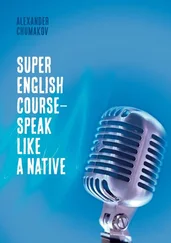Pineapple. Ananas comosus . You’ve heard of the golden ratio? The Fibonacci sequence? There was the spiraling pineapple, content on the marble counter. Complete in her waxen armor, her dusty green hexagonal cells. A composite fruit, each row of turrets climbing upward according to pattern. 0, 1, 1, 2, 3, 5, 8. Each term in the sequence is the sum of two terms before it, producing the most elegant spiral. Looping, orbiting, but never the same: progressing always upward and out. A helixed fruit, the golden Ananas . I held her in my hand, then to my breast. Spiked, violent, beautiful. Common to us all.
It was then that I dreamed of the seduction equation. I dreamed of a pattern, reaching backward in time, producing a new term for the present. I saw the cycle that links us to the terms that came before we were born: our parents, our grandparents, the first settlers who came to our shores. We’re linked to histories we can’t ever know, forgotten stories that form our most intimate substance. Holding that pineapple, I saw that such links aren’t actually chains, but rather widening spirals, delicate as the ripples that build into waves, the shoots that grow into branches on the most magnificent trees. I knew then that I was a branch, no less connected than anyone else. I encountered the dreamers I came from, and understood that I was the link between them and the world as it would become in my lifetime.
Alan Turing
c/o Sherborne School
Abbey Rd., Sherborne
Dorset DT9 3AP
7 April 1928
Dear Mrs. Morcom,
This is to say thank you for coming so quickly, in response to my letter, which I now realize was a little dramatic. It’s only that the world seemed as if it were ending. Thank you also for telling Chris that your travel plans just happened to change, and for the letter you left me, which was very kind, despite the fact that I seem to have overestimated the severity of Chris’s illness. I have read your letter five or six times, and I now feel as if we are friends.
I also want to say I’m sorry for avoiding you during your visit. I should have gone up to you and introduced myself, but I was rather queasy about having written you such a very urgent letter when Chris turned out to be fine. I should never have told you that I had a premonition of his death. That was extreme. Also, I think perhaps I shouldn’t have told you so many extra details about my personal life, which perhaps you had no interest in knowing.
I also regretted the part in my previous letter when I defended breaking the honor code in our particular case. I do not believe that one ought go about breaking codes as it seems convenient. It was an especially dirty thing to have done in Chris’s name. It is our goal, as you know, to describe the natural sequences by which human beings develop their mind-sets. We both have great respect for the patterns that govern our material world. We agree that we humans are composed of such rules, so it is a dangerous thing to go about breaking them on a whim. I should not have done so in Chris’s name, especially not without his permission.
But I am still learning, and I have only now applied myself as I ought to have done all along. I’m hoping you’ll forgive me. I promise to reveal myself next time you are here, as I am ever so grateful for the receipt of your letter. And for the fact that you raised such a straight-up and intelligent son.
Now that he is better I can safely promise that we will return to our studies with as much vigor as we maintained previous to his illness. We are even now reopening our investigation into the Fibonacci sequence, in the hopes that it will reveal to us new secrets about cellular growth. I am not sure if you are already acquainted with it. It is an integer sequence that grows according to a specific pattern: 1, 1, 2, 3, 5, 8, 13, 21, 34, 55, etc. Do you recognize the pattern? Don’t worry, I’ll tell you, in case you don’t see it. I shouldn’t want my letters to resemble a mathematics exam! (Mr. Ross, my form-master last year, would say, “This room smells of mathematics! Go out and fetch a disinfectant spray!” He is my chief enemy at our school.) The sequence follows as such: the previous number (n 1) is added to the current number (n 2), producing the next number (n 3). So 1 plus 1, for instance, makes 2, and 2 plus 1 makes 3.
This may seem unremarkable enough, but would you believe that innumerable organisms grow according to this very sequence? The leaves of artichokes, for instance, and pineapples, ferns, palm trees, and waves. You can see why Chris and I have been drawn to investigate further. Such a seemingly inorganic pattern, shared across so many species! Why shouldn’t this be the sequence that governs the growth of our brains?
My favorite example of the Fibonacci sequence in nature is the chambered nautilus, whose shell is built of adjoining chambers that spiral according to our very pattern. Here at Sherborne, we have a nautilus in a glass case in the science classroom, along with a very nice fossilized fern. Someone has cut the nautilus in half and labeled the pattern of chambers with little red pins and paper flags. You can see each room the shell’s inhabitant once occupied, at each phase of his life. It is very beautiful to look at when your attention is not kept by the lecture Mr. Phelps is currently delivering. The other day I pointed it out to Chris, and said, “Look, another time capsule!” Of course Chris immediately knew what I was referring to.
I find it comforting to know that we most likely grow according to regular numerical patterns. Perhaps I am only waiting for my pattern, and when I do, I will shoot up and overtake Henry Thornton as the tallest boy in my class! I am only being humorous. But it is amazing, don’t you think, that such series exist connecting us to pinecones and waves?
But I am rattling on. I have gone on 805 words, not counting the date. I intended to be briefer this time, only I am very excited that Chris and I are back at our work!
I promise to report our progress to you regularly, as you are probably very proud of your son and anxious to hear news of his studies. For now, though, I shall stop. In the meantime, Chris and I shall continue working hard on discovering the mechanism for cellular growth. The possibilities are endless, you know, if that kind of thing could be understood. We could one day create artificial organisms, prompting them to grow from single units in the same way that humans do! One day perhaps we’ll make a human brain, brick upon brick! Only imagine.
Yours very sincerely,
Alan Turing
P.S.: I do think, considering his cough, that Chris ought to refrain from excessively sporty activity. You might suggest this to him next time you write him, as he is anxious to return to his previous routine.
P.P.S.: The last, on my honor: I hereby promise that if in the future Chris should fall ill, even if only slightly, I will be sure to write you again. One cannot be too cautious. That is all. I shall return to my studies, before it is lights-out and I must go to sleep.
(5) The Diary of Mary Bradford
1663
ed. Ruth Dettman
10th . Night. Perhaps, methinks, tomorrow morning I shall wake to darkness, and never again the promise of light.
Have had high words with father about impending marriage. Feared perhaps he would weep. He does not wish me to marry contrary to inclination or before I am ready, and yet he believes it to be best. He fears (and here it was he seemed ready to weep, and I fixed, without a tear) that he is not, as he ought to be, able to defend us from danger. Whittier (he said), a man known for estimableness and character, and courage in battle, having served under Monck when Monck was still loyal, and being awarded highest honors for service. Under great threat by natives, Massachusetts Colony requires more men of Whittier’s age. And so it be father’s wish that daughter marry, and so induce Whittier to join us.
Читать дальше












